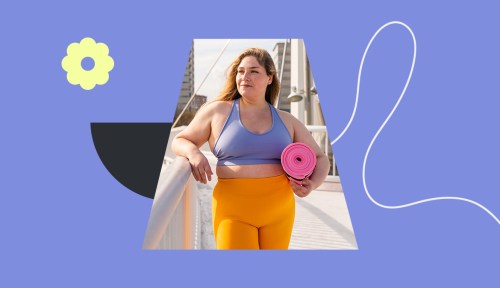Having a “beginner’s mind” is a tenet of mindfulness that refers to approaching life with openness and curiosity. That’s part of how Natalia Tabilo of Yoga For All Bodies cultivated her own yoga practice: By tuning in to the needs of her body and the way it wanted to move, and finding the poses that suited her.
Experts in This Article
That philosophy is what she brings to her students now as a yoga teacher, and is part of her advice for people who may be new to yoga, or just starting it up again.
“When I realized that this is a practice in the sense that every day, your body, your mind, and even the sides, the left and the right side, are going to be different, everything changed,” Tabilo says.

On this week’s episode of TheWell+GoodPodcast, Tabilo shares the story of how she came to yoga, and why she didn’t immediately feel it was for her because she lives in a larger body. But when she realized that she could vary the poses in a way that suited her, it opened up a whole new world of movement.
She’s not the only one to approach physical activity in this way. The inclusive fitness space is working to make modifications a central component of physical activity, not an afterthought.
“I don’t walk, and my body is really different than most, but there are minute little differences in everyone’s bodies that I think we should all take inventory of and be proud of,” Alana Nichols, a Paralympic athlete who is paralyzed below her mid-thighs, previously told Well+Good. “It’s important to modify [workouts] to honor those experiences.”
Tabilo actually prefers the word “variations” to “modifications,” because she doesn’t think there should be one primary way of doing things.
“You are in charge of your practice in the sense that you can decide to do a variation,” Tabilo says. “When you decide to honor your mind and your body with a variation, you are finding your power.”
You can hear more of Tabilo’s story and advice for approaching yoga with a beginner’s mind by listening to the full episode now.
Sign Up for Our Daily Newsletter
Get all the latest in wellness, trends, food, fitness, beauty, and more delivered right to your inbox.
Got it, you've been added to our email list.











